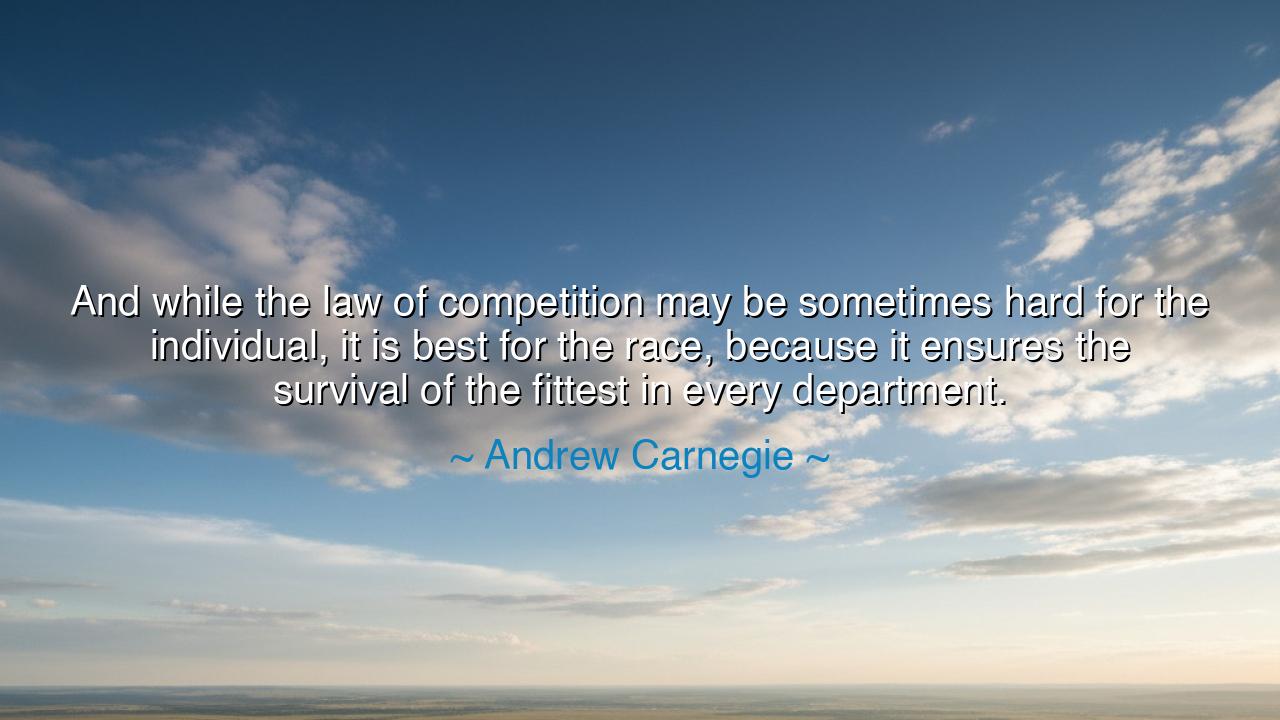
And while the law of competition may be sometimes hard for the
And while the law of competition may be sometimes hard for the individual, it is best for the race, because it ensures the survival of the fittest in every department.






Opening Scene – Narrated by Host
The room was quiet, the soft flicker of a desk lamp casting gentle shadows on the walls. Jack sat at his desk, the light from the lamp reflecting off the scattered papers and books in front of him. His fingers lightly drummed on the desk, his mind elsewhere, lost in thought. The world outside seemed far away, but inside, he was caught in a mental tug-of-war, as if something wasn’t quite sitting right with him.
Jeeny sat nearby, the soft rustling of a page turning breaking the silence between them. She could sense the undercurrent of frustration, the way Jack’s thoughts seemed to be circling, never quite landing on something concrete. She knew it was time to start the conversation.
Host: The room was still, but the unspoken words seemed to be waiting to be uncovered.
Jeeny: Her voice, gentle but direct, cut through the silence. “Jack, I came across a quote today that made me think of you. It’s from Andrew Carnegie. He said, ‘And while the law of competition may be sometimes hard for the individual, it is best for the race, because it ensures the survival of the fittest in every department.’ What do you think about that?”
Jack: He looked up at her, the weight of the words settling in slowly. He paused for a moment, his fingers stilling as he processed the quote. “It’s a classic take, isn’t it? This idea of competition being a driving force for progress. On the one hand, it makes sense. Without competition, without the push to be better, there’s no growth. It’s about survival, adaptation, evolution. But on the other hand, it’s hard to swallow, especially when you’re the one feeling like you’re being left behind in the race.”
He exhaled, a quiet frustration in his voice. “The thing is, when competition is the measure of everything, the individual gets lost. It’s always about who’s on top, who’s winning. But it’s easy to forget that there’s more than just ‘survival of the fittest.’ Sometimes, being the fittest means pushing others down instead of lifting them up.”
Jeeny: She nodded, her eyes steady, reflecting an understanding of his frustration. “Exactly. The idea of competition, when taken to extremes, becomes more about winning at all costs than about true progress. Yes, it can drive people to do better, to innovate. But it can also leave a lot of people feeling overlooked, like they’re just part of a race that they can’t even begin to compete in.”
Her voice grew softer, almost reassuring. “I think the key is finding balance. Competition, in its healthiest form, pushes us forward, but it doesn’t have to be about defeating others. It can be about improving yourself, growing without the need to tear others down.”
Jack: He nodded slowly, the weight of her words sinking in. “That’s true. I guess I’ve been seeing competition through a more individualistic lens — the race against others, the need to come out on top. But maybe the real point is about evolving, about bettering yourself and contributing to something bigger than just your own success.”
His voice softened, a quiet realization forming. “Maybe what Carnegie’s missing is the idea that the race isn’t just about winning. It’s about how we all push forward together. It’s not about being the fittest, but about using competition to grow collectively, not just individually.”
Jeeny: She smiled softly, her expression warm with understanding. “Exactly. The beauty of healthy competition is in how it can push everyone to improve, to innovate, but it doesn’t have to be at the expense of others. In fact, it’s when we use competition to support each other, to lift each other up, that the whole system benefits. The survival of the fittest isn’t about eliminating everyone else. It’s about finding ways to help everyone become the fittest in their own right.”
Her voice grew more hopeful, almost like a reminder. “In the end, we’re all part of the same race, and if we push each other forward, we all end up further along, together.”
Jack: He smiled slightly, the tension in his shoulders easing. “I think I get it now. It’s about how we define success, right? It’s not just about being the fastest, the strongest, the winner of the race. It’s about helping everyone move forward, contributing to progress in a way that benefits not just the few, but everyone.”
He exhaled, the weight of the conversation lifting. “Maybe the real strength comes from seeing competition as a tool for collective improvement, not just individual survival.”
Jeeny: She nodded, her eyes warm with quiet satisfaction. “Exactly. When we focus on the collective growth, competition can be a powerful force for positive change. It’s not about defeating others; it’s about challenging each other to reach new heights.”
Host: The room felt lighter now, the earlier frustration replaced with a sense of clarity. Jack seemed to have found a new understanding of competition — not as a means of division, but as a tool for collective progress. The world outside continued its hum, but inside, the conversation had shifted to a deeper truth: competition, when rooted in the desire to grow together, was the driving force behind true advancement.
End Scene.






AAdministratorAdministrator
Welcome, honored guests. Please leave a comment, we will respond soon